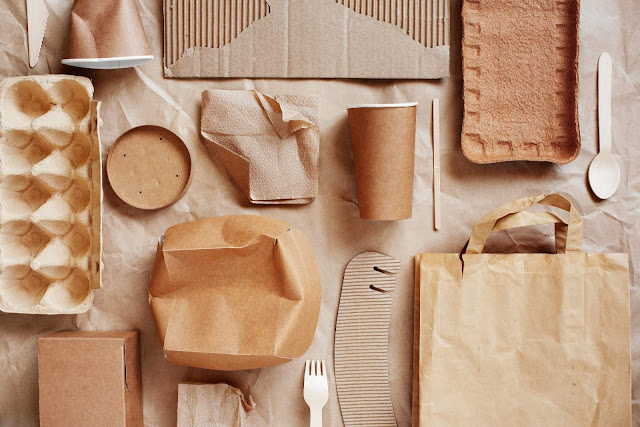Using Sustainable Packaging: Future of Production
 |
| Sustainable Packaging |
In the corporate sector, eco-friendly activities were
once fairly unique. Going green was originally something that only specialized
or progressive businesses would promote. But nowadays, adopting sustainable packaging
is no longer optional; rather, it's rapidly evolving into a requirement.
Sustainable
packaging is any
type of eco-friendly material used to wrap, store, ship or shelve products. One
type of ecological packaging that is gaining popularity is compostable
packaging. While exhibiting the qualities and durability of conventional
materials, it protects food products comparable to standard packaging. However,
it completely decomposes in the ground to become healthy organic compost. Any
kind of eco-friendly material that is used to wrap, store, ship, or shelf
products qualifies as sustainable packaging.
Recyclable materials like PET or HDPE plastic,
cardboard, and paper wrappings are all included in environmentally friendly
packaging. These materials can be shredded, pulped, melted down, and remoulded
to start over as raw material for new packaging or other purposes once they
have been properly classified for recycling. However, unlike plastics, which
degrade every time their polymer chains are broken (or melted), cardboard will
maintain the integrity of its qualities no matter how many times it is recycled
before needing to be disposed of in a landfill or burned. Due to their
similarities to plastic but ability to decompose in compost, other
environmentally friendly materials including Polylactic acid (also known as
biodegradable plastic) and cellulose-based polymers are utilized for
sustainable packaging.
According to Coherent Market Insights, The global sustainable packaging market size is estimated to be valued at US$ 227.32 Bn in 2021 and is expected to exhibit a CAGR of 7.55% between 2022 and 2030.
These sustainable
packaging can be
shaped into flexible packaging, cutlery, and food service containers. You can
package food in these compostable containers as well. These films which are
used here, work quite similarly to ordinary plastics thanks to the advancements
in technology, and they are certified to safely decompose in compost because of
their organic component. It is the perfect material for effective sustainable
packaging because of its special performance and environmental friendliness.
Nearly as significant as the materials themselves is
where they came from. To ensure optimum sustainability for businesses and
consumers, paper and paper-based products should be sourced ethically. There is
no getting around the fact that trees must be cut down to obtain paper. This
does not imply that consuming paper is necessarily harmful to the environment
or that all paper goods contribute to deforestation. When utilising paper- or
cardboard-based packaging, you and your clients can rest easy knowing that
Packaging Supplies only sources all of its packaging goods from managed
forests.



Comments
Post a Comment